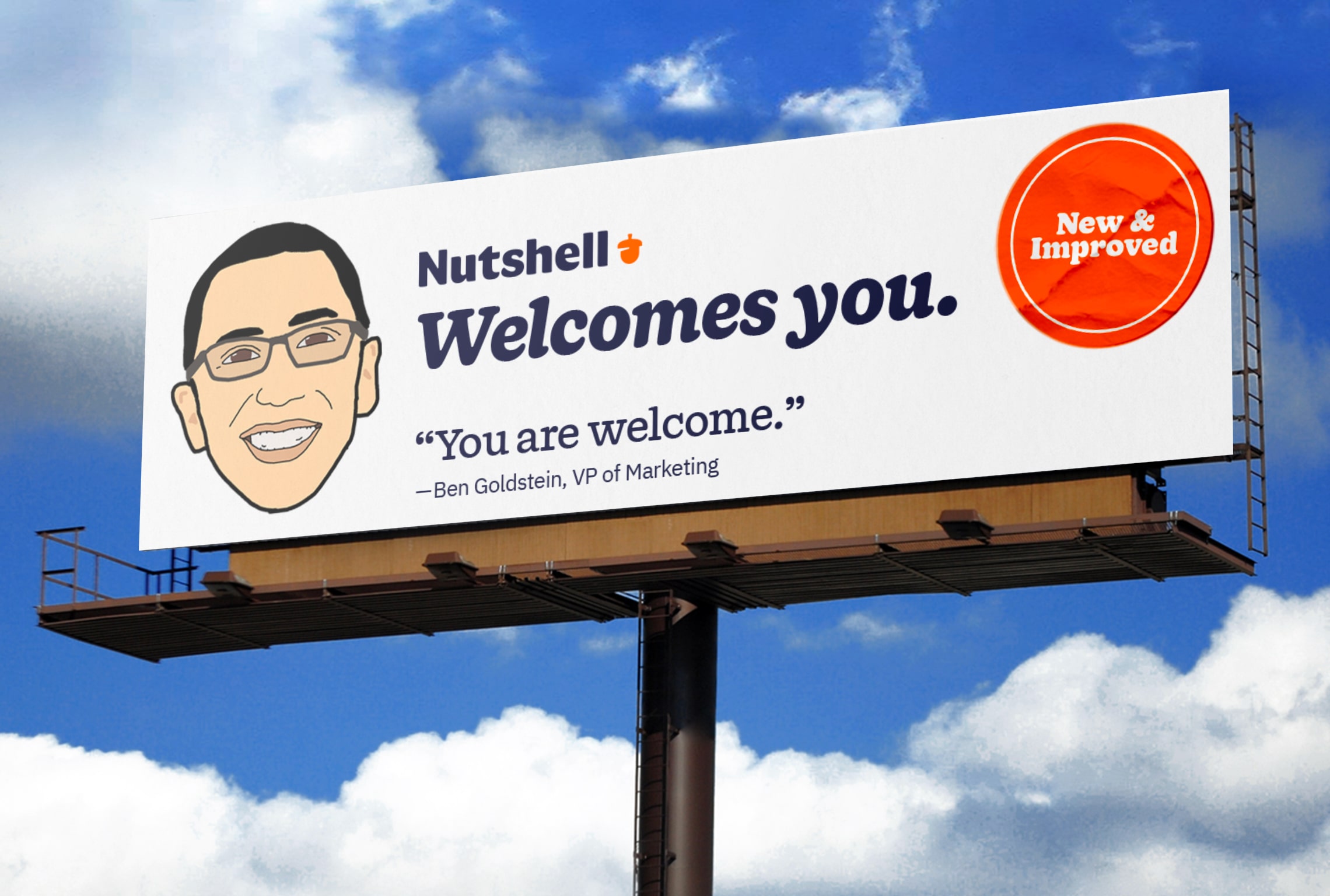
While true for any business, small sales teams can reap the optimal benefits from the resources available in CRM software. For instance, most sales managers are constantly trying to find better ways to:
• Identify, qualify, and follow up with leads
• Effectively prioritize sales tasks
If your revenue is generated through meaningful, long-lasting relationships with customers, these tasks will eventually become too demanding to handle manually—if they haven’t already. Some businesses try to solve this problem by adding more members to their sales team. However, this can be costly and does not truly and fully address most pain points businesses experience.
Sales leaders appreciate the fact that CRM tools keep their customer and pipeline data safely stored in a central, functional location. CRMs also allow salespeople to easily manage and monitor sales and staff performance, making it easier to optimize every aspect of the sales department.
The statistics demonstrating the benefits of CRM tool integration are undeniable. As of 2014, the U.S. saw an astounding 87% increase in the use of CRM and mobile CRM tools.
CRM tools not only improve the sales pipeline and execution process for sales teams, but harness potent and powerful data that empowers organizations to dramatically improve their decision-making process.
In fact, according to Harvard Business Review, companies whose decision making is data-driven are more productive and up to 6% more profitable than those that don’t rely on data. If implemented correctly, a CRM tool can be a game-changer, boosting confidence, productivity, communication, collaboration, and overall profits.
The right CRM tool can help a sales team store their customer and lead contacts, sales activities, and conversations safely in one central location. This information can be accessed from multiple locations, giving your sales team the flexibility and resources they need to close the next deal. The best part is that your important data will not be lost since it is now stored on a secured digital platform instead of in piles of paper or outdated spreadsheets.
A CRM tool keeps sales teams on track and arms them with ways to efficiently prepare reports for management. This ability fuels transparency and collaboration for sales teams and quickly and easily provides information about sales currently in progress in the pipeline.
A CRM tool allows sales teams to prioritize tasks on a day-to-day basis, ensuring customers are not forgotten, and that important prospects are contacted on time. Most importantly, CRM planning automation allows sales teams to spend more time with customers at the right time, which often leads to an increase in deals closed and fosters stronger customer relationships.
If you have been tracking your leads and prospects using spreadsheets, CRMs help sales teams isolate data and identify critical patterns that impact conversions. This eliminates hours of copying and pasting from multiple documents or searching through several disorganized lists of data.
With the help of a solid CRM, sales teams can share their schedules, calendars, pipeline templates, and email conversations, thus bringing unity to sales teams. The ability to quickly identify sales patterns and processes allows organizations to work effectively with a smaller sales team. Sales management can also reap the benefits of a CRM by having direct access to team members’ progress documentation, eliminating the need for multiple check-ins that can cost sales teams valuable time.
A good CRM relieves sales teams of the majority of repetitious administrative tasks that consume a lot of time, yet yield little profit. A CRM stores product and price details, provides reminders for tasks, and gives a specific pipeline for a sales team, to name a few. Combined with built-in automation features, CRMs can take much of the workload off of busy salespeople’s shoulders.
While CRM systems are not free, they certainly help save costs in the long run. With a small sales team, it can be quite costly to double-back and correct erroneous communications with prospects. Also, businesses save money and time spent on the trivial tasks of sorting through clutter and multiple documents to complete vital sales tasks since new information can be safely stored in the system and viewed by all.
Solid customer retention practices are also vital for a sales team’s success. Businesses can offset customer acquisition costs through sales to their existing customer base. Gain greater access to the cross-sell and renewal opportunities in your customer database and see an increase in repeatable sales thanks to the trust you’ve already earned.
Where CRMs truly shine, however, is in the money they earn through the optimization of sales processes. Between automation, reports, and historic timelines across all the deals, creating new plans to re-focus sales efforts becomes easy. Streamlining the sales process from the top-down, with the help of a solid CRM, is where businesses see the most return on their investment.
When prospect and customer data is stored in a CRM, the needs of customers can more effectively be tracked and analyzed. This keeps your sales team focused on conducting the right actions at the right time. The result is an increase in customer satisfaction and customer loyalty (as well as higher profit margins).
Nutshell integrates with tons of software, both natively and through Zapier. See if your favorites are on the list.

Learn what matters to your customers—their goals, obstacles, and needs. At the end of every exchange, salespeople can make sure to have a follow-up action ready to go. Teams can document these notes in a CRM system so they can seamlessly pick up exactly where the last conversation left off. CRMs’ reporting and results tracking abilities also help determine which actions are working, and which need to be reconsidered.
After teams learn more about a customer’s business challenges and goals, teams can recommend products or special promotions relevant to their interests, at exactly the right time. With a CRM tool, you’ll also know what a customer has historically purchased and how they are leveraging your products or services, so you can provide the most relevant content and information. CRM data can also be extrapolated to inform the sales teams of other customers with similar needs, purchasing habits, and other details, so that successful campaigns can be copied from one case to another.
Customers love you for the personal experiences you provide, but it becomes more challenging to know the details of each and every customer—and when to follow up with them—when high growth kicks in. A CRM platform can host email templates, set up task reminders, and enable phone calls to help you connect with customers faster and easier.
The key role a CRM plays in developing a successful customer relationship is highlighted by the experience of Zack Academy, a company that with a sales team of just 7 Nutshell users closed 20,000 leads in 2019! Zack Academy CEO Zachary Rose explained how Nutshell had been implemented in this way:
“The main use of our CRM is as a step-by-step guide for closing and managing our most popular client types. This allows any employee to jump into a client relationship and provide accurate and effective solutions to their problems and needs, no matter where they are in the sales process.”
A CRM will streamline the sales cycle from start to finish, resulting in more closed deals and enabling sales teams to reach their goals faster. Since order processing and creating customer quotes can easily be automated in a CRM, sales teams are able to reduce production costs and increase sales revenue, while consistently meeting the standards put in place by management.
Zachary Rose detailed the vital role Nutshell’s automated process task administration played in enabling the company’s small sales team to close an impressive 20,000 leads last year:
“With Nutshell, we were able to build a 100% custom solution to our very unique client demands, while also tying seamlessly to multiple API platforms. In addition, the automated tasks that are assigned as previous ones are completed is a game-changer, and for years has helped us succeed. We have some Nutshell processes that are literally five years old and have not been touched since we first created them! This is the definition of ‘set it and forget it.'”
By tracking communications with prospects and customers, CRM software helps sales teams know exactly when customers need to be contacted. whether it be for product replacement, renewing a contract, or identifying the right time for an upsell. This all increases your chances of closing a sale (or gaining additional sales).
Even the best product is only as good as the customer service that comes with it, both before and after the sale. Providing your prospects with several irrelevant marketing promotions may annoy them or cost a sale. Plus, lack of appropriate follow-ups after a sale can lose customers, wasting the time and effort that went into winning a valuable customer. When a sales team has instant access to a customer’s data, teams can provide personalized messages and solutions, without wasting a moment of time.
While a CRM tool can bring amazing benefits to a business, they require effort, consistency, and dedication from the sales team. That said, a solid CRM tool is critical to the success of a sales team. A sales team also needs to be in sync with their activities and progress. This will enable better productivity, transparency, and collaboration. Most importantly, sales teams need to embrace the concept that by documenting all activities and following the procedures set in place by management, they are more likely to reach their sales goals. It is also critical to understand that sales teams will benefit greatly by being able to login to a CRM and share information on prospects and customers so that everyone can help out in closing the next sale.
Sales teams can tap into a world of unlocked potential when harnessing the power of the right CRM tool. If adopted and used appropriately, a CRM tool can boost the performance of any sales team.

Join 30,000+ other sales and marketing professionals. Subscribe to our Sell to Win newsletter!